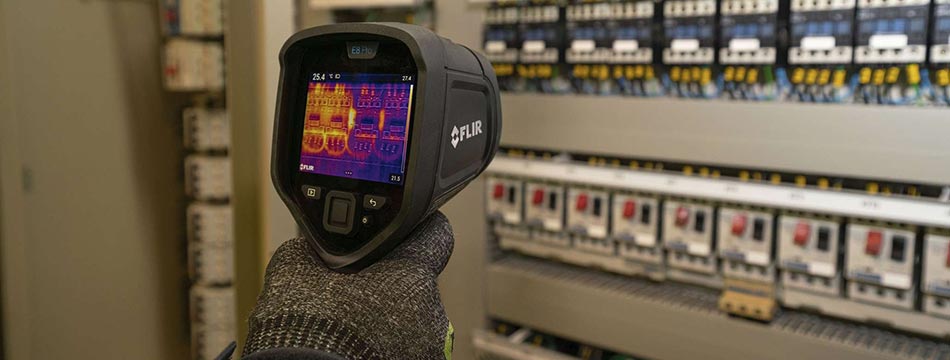
Thermal imaging cameras are indispensable tools for electricians, switchboard operators, high voltage engineers, maintenance technicians, and solar engineers. An electrical thermal imaging camera allows professionals to detect faults such as overheating and dead components, as well as perform system and circuit maintenance efficiently and safely. This guide will explain how thermal cameras can benefit your work, where and when to use them, and recommend specific models for various applications; helping you to choose the best thermal camera for electrical inspections.
Shop Electrical Inspection Thermal CamerasQuick Links
- Benefits of Using a Thermal Imaging Camera for Electrical Inspections
- Where Can an Electrical Thermal Imaging Camera Be Used?
- When to Use a Thermal Imaging Camera for Electrical Inspections
- Who Will Benefit from Using a Thermal Imaging Camera for Electrical Inspections?
- Best Thermal Cameras for Electrical Inspections
- Conclusion: Which Thermal Imaging Camera Is Right for Electrical Inspections?
Benefits of Using a Thermal Imaging Camera for Electrical Inspections
Why Use a Thermal Imaging Camera for Electrical Inspections?
- Reduced Downtime: Early detection of potential electrical issues can prevent costly breakdowns and unscheduled downtime.
- Safety: Identifying overheating or faulty components can reduce the risk of electrical fires and shocks, ensuring a safer working environment.
- Efficiency: Thermal cameras provide a non-invasive way to inspect electrical systems, saving time and effort compared to traditional methods.
How Does an Electrical Thermal Imaging Camera Work?
Thermal imaging cameras detect infrared radiation (heat) emitted by objects. By visualising heat patterns, an electrical thermal imaging camera can highlight abnormalities, such as overheating components or cold components, in electrical systems that are invisible to the naked eye. As a result, electrical professionals can pinpoint potential issues early, easily, and efficiently.
Where Can an Electrical Thermal Imaging Camera Be Used?
Thermal cameras are versatile tools that can be used in a variety of settings.
- Homes: An electrical thermal imaging camera can be used to inspect the electrical panels, outlets, and wiring in domestic houses.
- Businesses: Electrical contractors and maintenance technicians can benefit from integrating thermal imaging cameras into regular inspections of electrical systems to ensure operational efficiency, decrease downtime, and reduce repair costs.
- Construction Sites: It is integral that electrical installations meet functionality and safety regulations. Construction teams can use an electrical thermal imaging camera to identify impending issues quickly, ensuring they are addressed as appropriate.
- Factories: Like other businesses, factories can use thermal cameras to monitor machinery and electrical systems to ensure optimal functionality and prevent unplanned, expensive production halts.
- Utilities: High-voltage engineers may benefit from using an electrical thermal imaging camera to inspect and maintain power lines, transformers, and other critical infrastructure.
- Telecoms & Data Centres: Telecoms and data centres rely on a combination of electrical, mechanical, and HVAC systems to support their services. Thermal imaging cameras offer an easy method of conducting electrical, mechanical, and HVAC inspections, ensuring maintenance technicians can spot potential problems before they lead to costly downtime. Unscheduled downtime can cost data centres up to $8000 per minute as well as unmeasurable reputational damage. It is for these reasons that many data centres have already incorporated thermal imaging into their maintenance routines. To learn more about one such data centre, please read our article on Defending Data Centres Using FLIR Thermal Imaging.
When to Use a Thermal Imaging Camera for Electrical Inspections
Thermal imaging cameras can be used in various scenarios such as:
- Routine Maintenance: Regular inspections to ensure the health of electrical systems.
- Troubleshooting: Quickly identifying the source of electrical faults.
- Preventive Measures: Detecting potential issues before they lead to failure.
Who Will Benefit from Using a Thermal Imaging Camera for Electrical Inspections?
A wide range of stakeholders will benefit from using thermal imaging cameras for electrical inspections, including:
- Electricians
- Switchboard Operators
- High Voltage Engineers
- Maintenance Technicians
- Solar Engineers
- Business Owners
- Homeowners
Best Thermal Cameras for Electrical Inspections
To help you choose the best thermal camera for electrical inspections we have provided a selection of suitable models
at a variety of price points. Please choose the model most compatible with your needs and budget.
Basic Thermal Imaging Camera for Electrical Inspections
These entry-level thermal imaging cameras are suitable for indoor electrical inspections only.
1. FLIR One Edge Pro
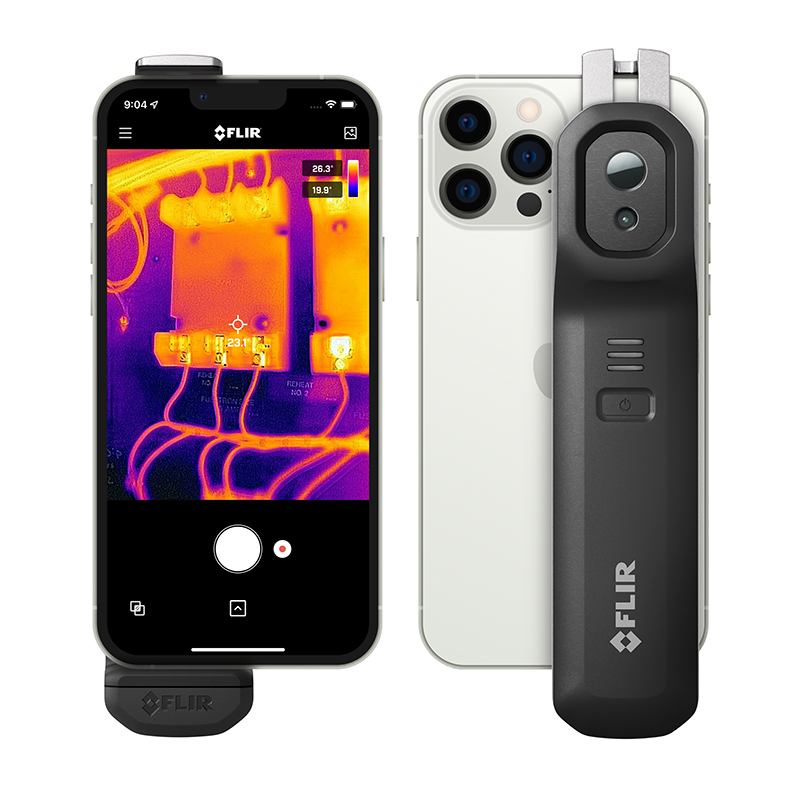
- IR Res: 160 x 120px
- Platform: Mobile device/iOS/Android
- Use: Indoor
- Features: Basic camera with basic reporting.
2. FLIR C5
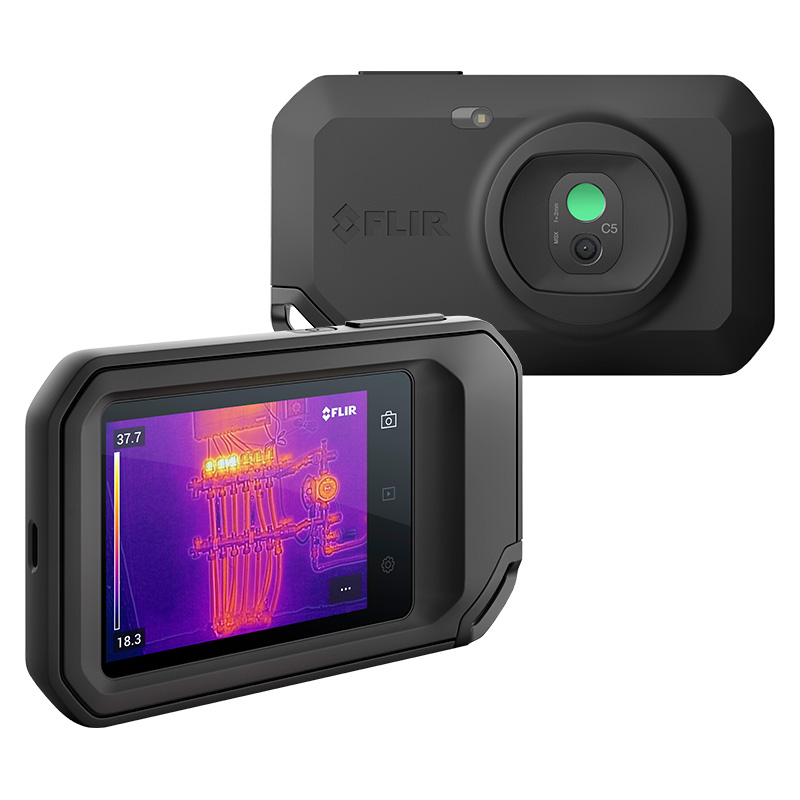
- IR Res: 160 x 120px
- Use: Indoor
- Lens: Fixed
- Features: Basic camera with basic reporting.
3. FLIR E5 Pro
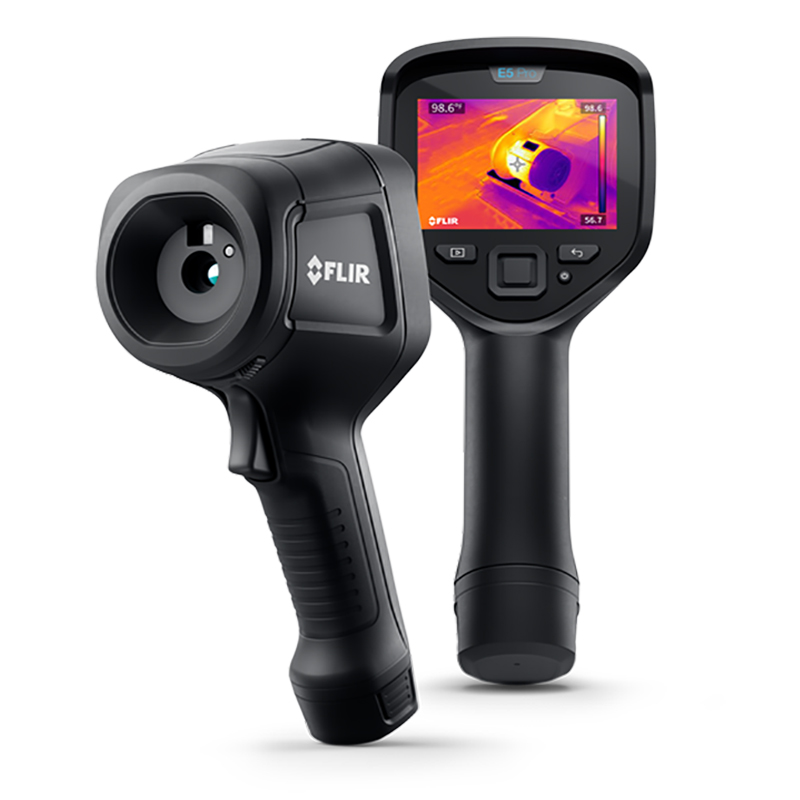
- IR Res: 160 x 120px
- Use: Indoor
- Lens: Fixed
- Features: Basic camera with basic reporting.
4. FLIR E6 Pro
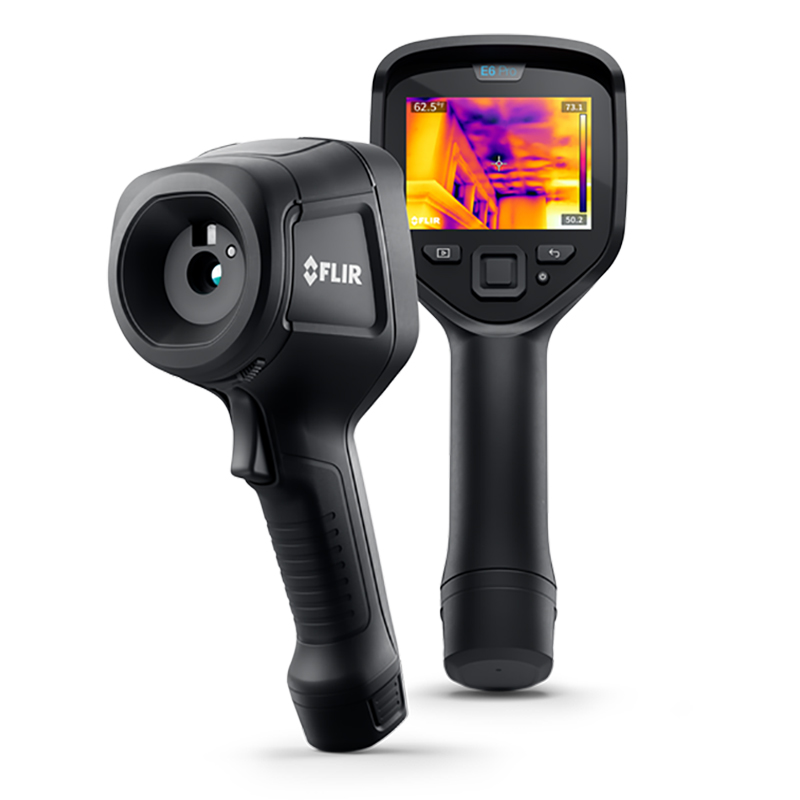
- IR Res: 240 x 180px
- Use: Indoor
- Lens: Fixed
- Features: Basic camera with basic reporting.
5. FLIR E8 Pro
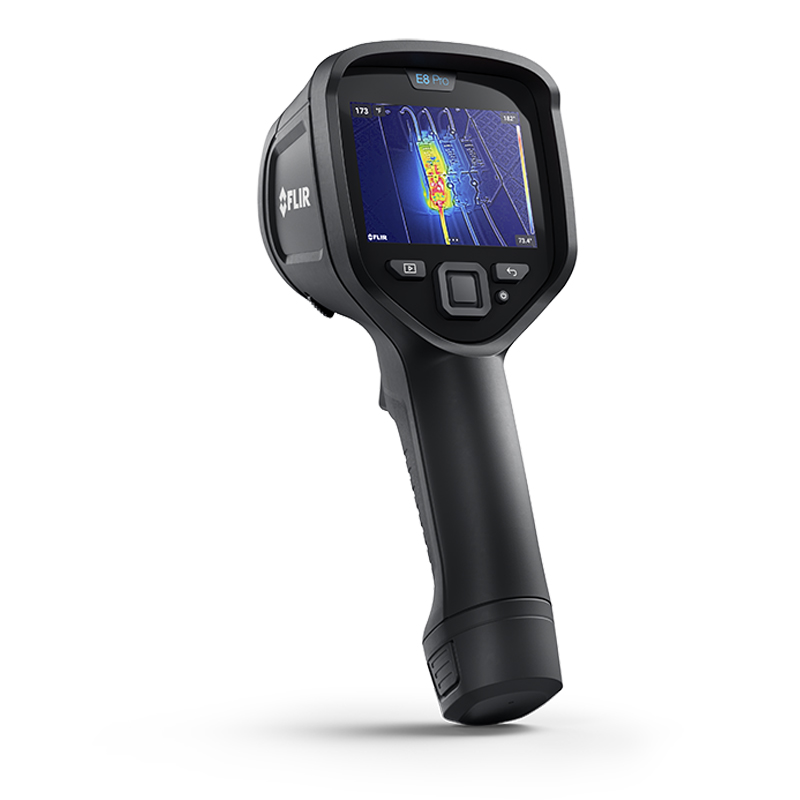
- IR Res: 320 x 240px
- Use: Indoor
- Lens: Fixed
- Features: Basic camera with reporting.
6. Fluke PTi120
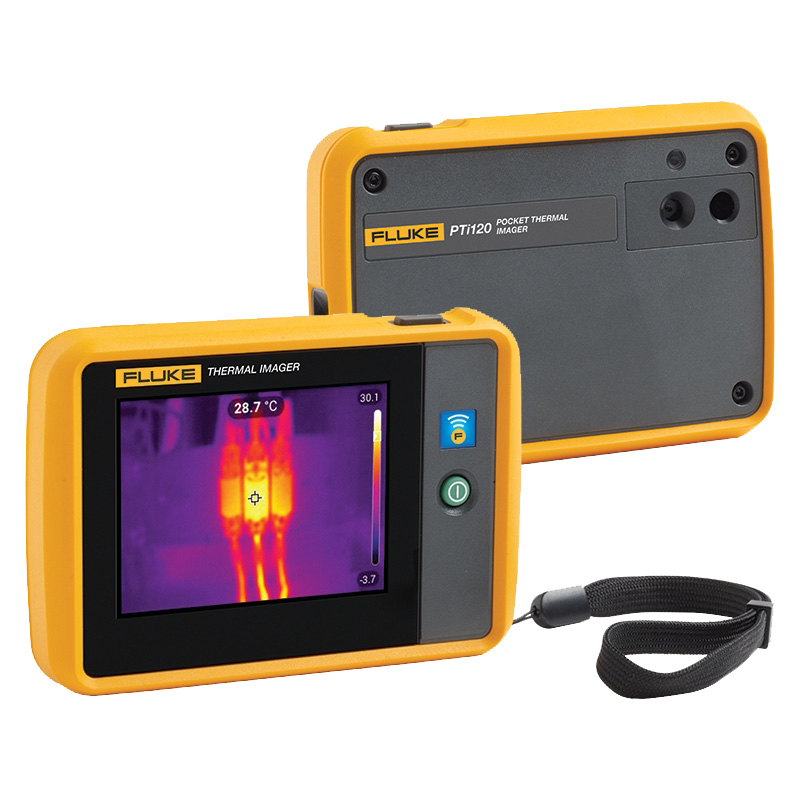
- IR Res: 120 x 90px
- Use: Indoor
- Lens: Fixed
- Features: Basic camera with basic reporting.
7. Fluke TiS20+
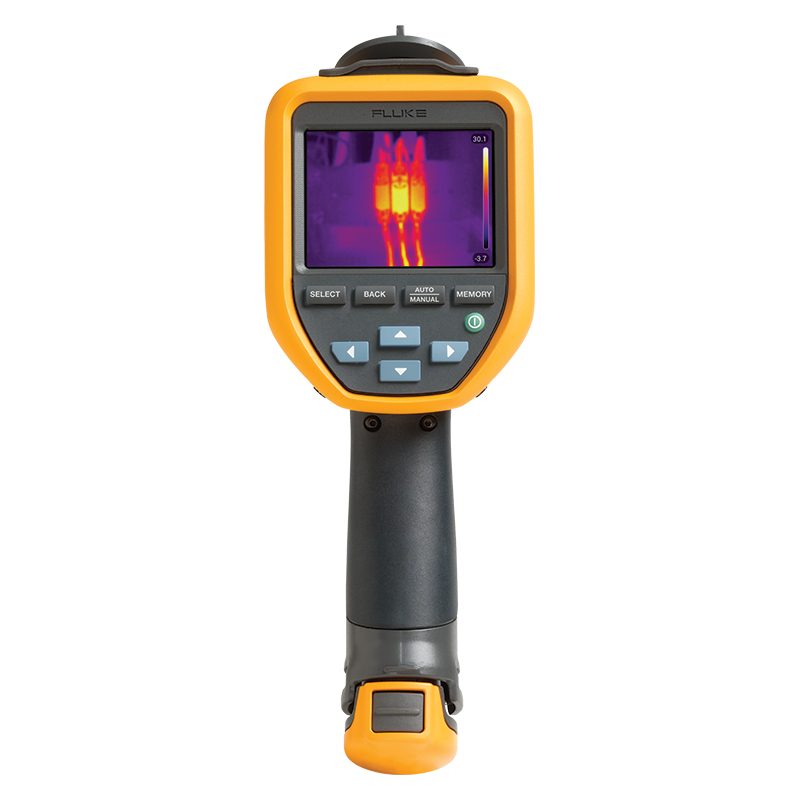
- IR Res: 120 x 90px
- Use: Indoor
- Lens: Fixed
- Features: Basic camera with basic reporting.
8. Hikmicro Eco
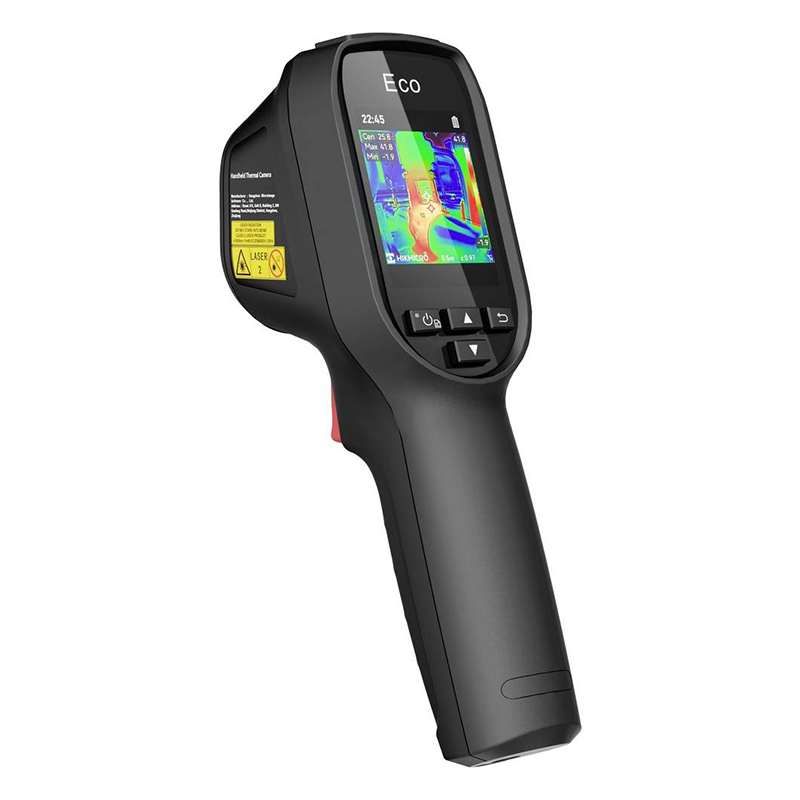
- IR Res: 96 x 96px
- Use: Indoor
- Lens: Fixed
- Features: Basic camera with basic reporting.
9. Hikmicro Eco-V
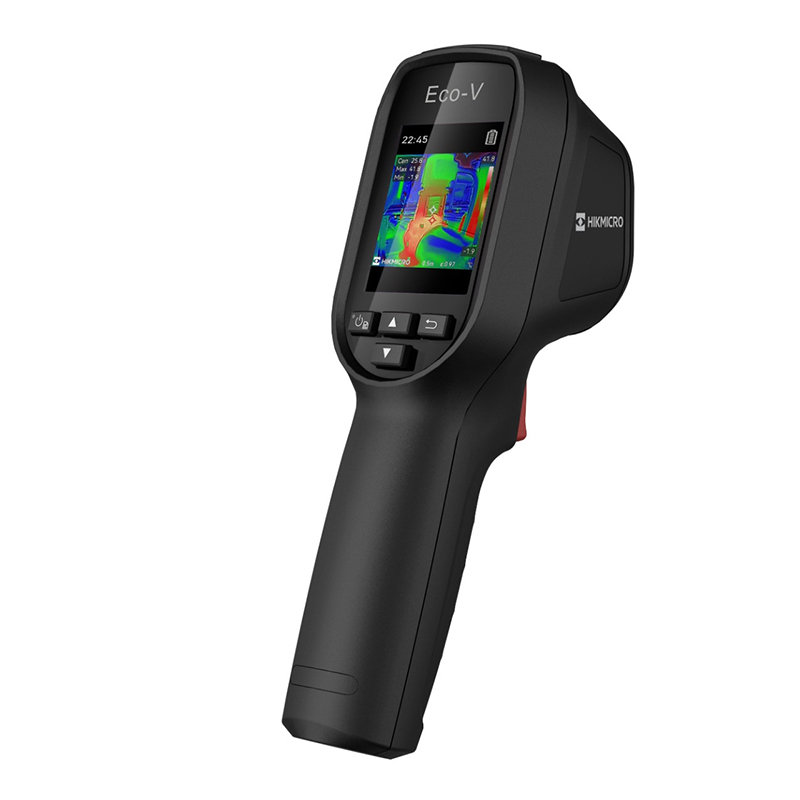
- IR Res: 96 x 96px
- Use: Indoor
- Lens: Fixed
- Features: Basic camera with basic reporting.
Mid-Range Thermal Imaging Cameras for Electrical Inspections
The following mid-range thermal cameras are ideal for conducting electrical inspections inside and outside.
1. FLIR E54
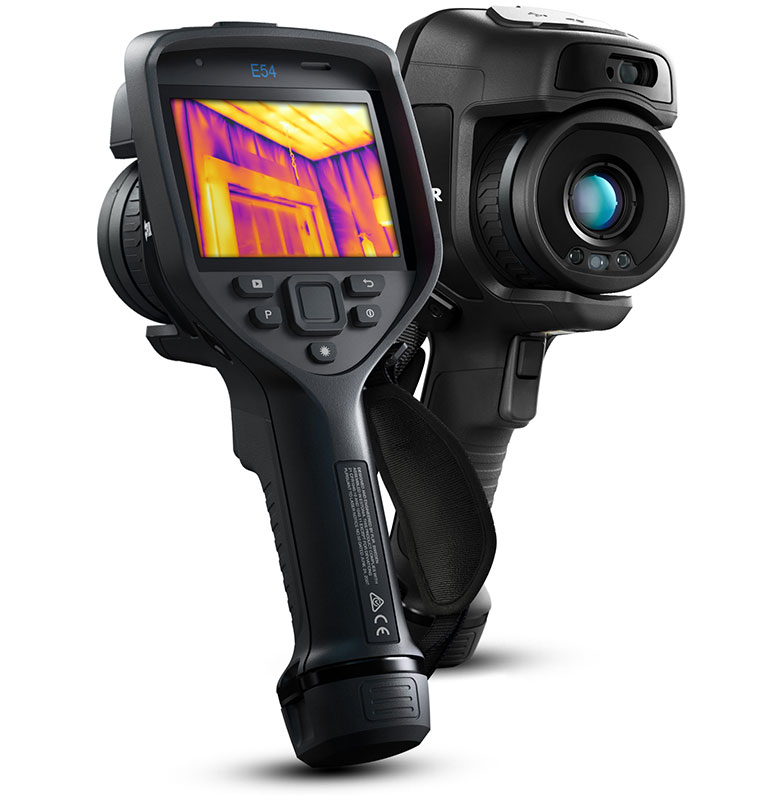
- IR Res: 320 x 240px
- Use: Indoor/Outdoor
- Lens: Fixed FOV, 24 degrees
- Features: Mid-range camera with reporting.
2. FLIR E76
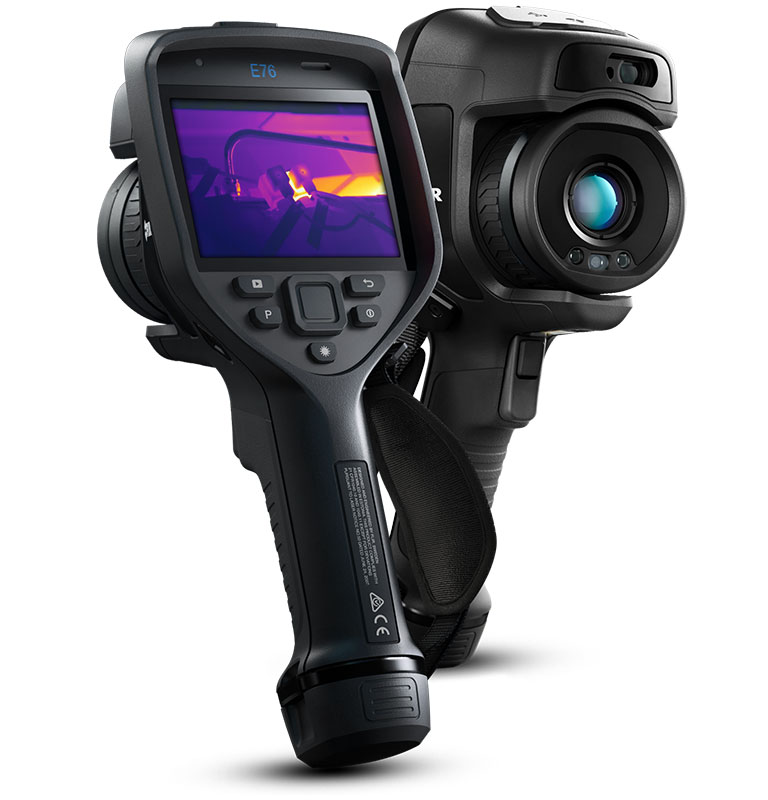
- IR Res: 320 x 240px
- Use: Indoor/Outdoor
- Lenses: Interchangeable, 14, 24, 42, 80 degrees
- Features: Mid-range camera with professional reporting.
3. FLIR E86
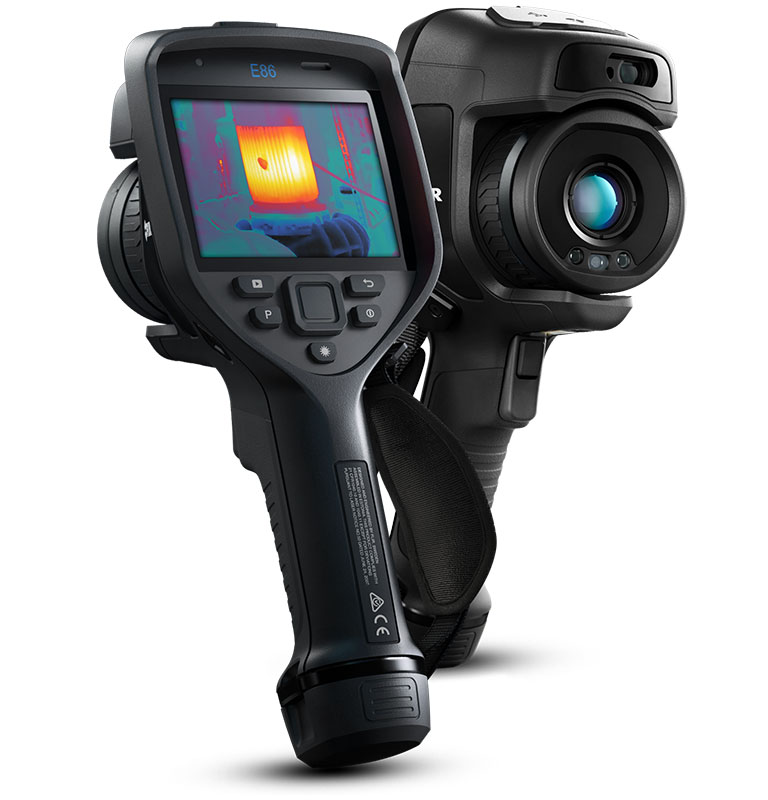
- IR Res: 484 x 348px
- Use: Indoor/Outdoor
- Lenses: Interchangeable, 14, 24, 42, 80 degrees
- Features: Mid-range camera with professional reporting.
4. Fluke TiS60+
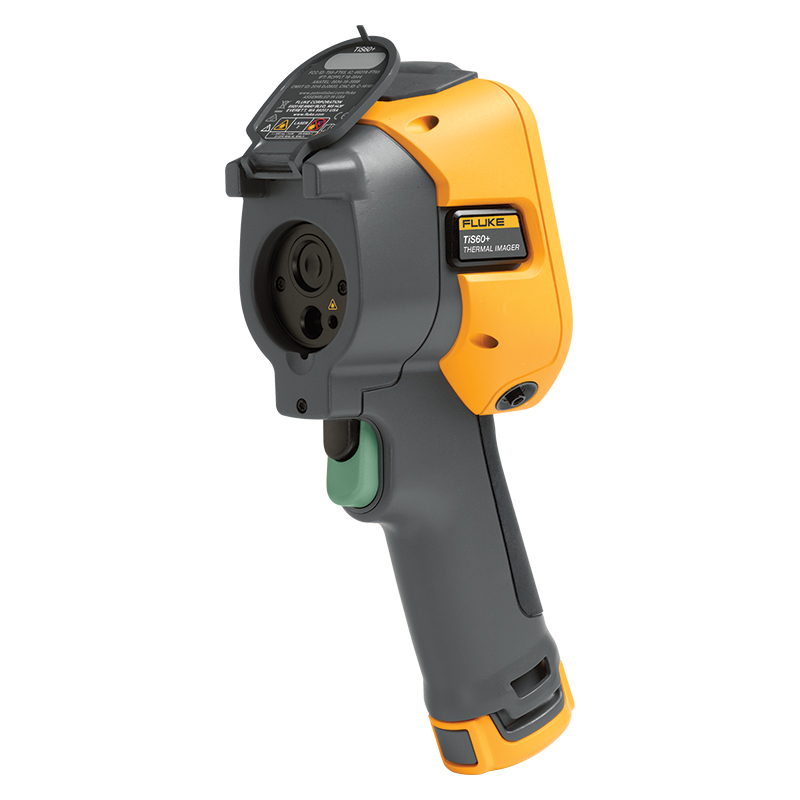
- IR Res: 320 x 240px
- Use: Indoor/Outdoor
- Lens: Fixed FOV, 24 degrees
- Features: Mid-range camera with reporting.
5. Hikmicro M30
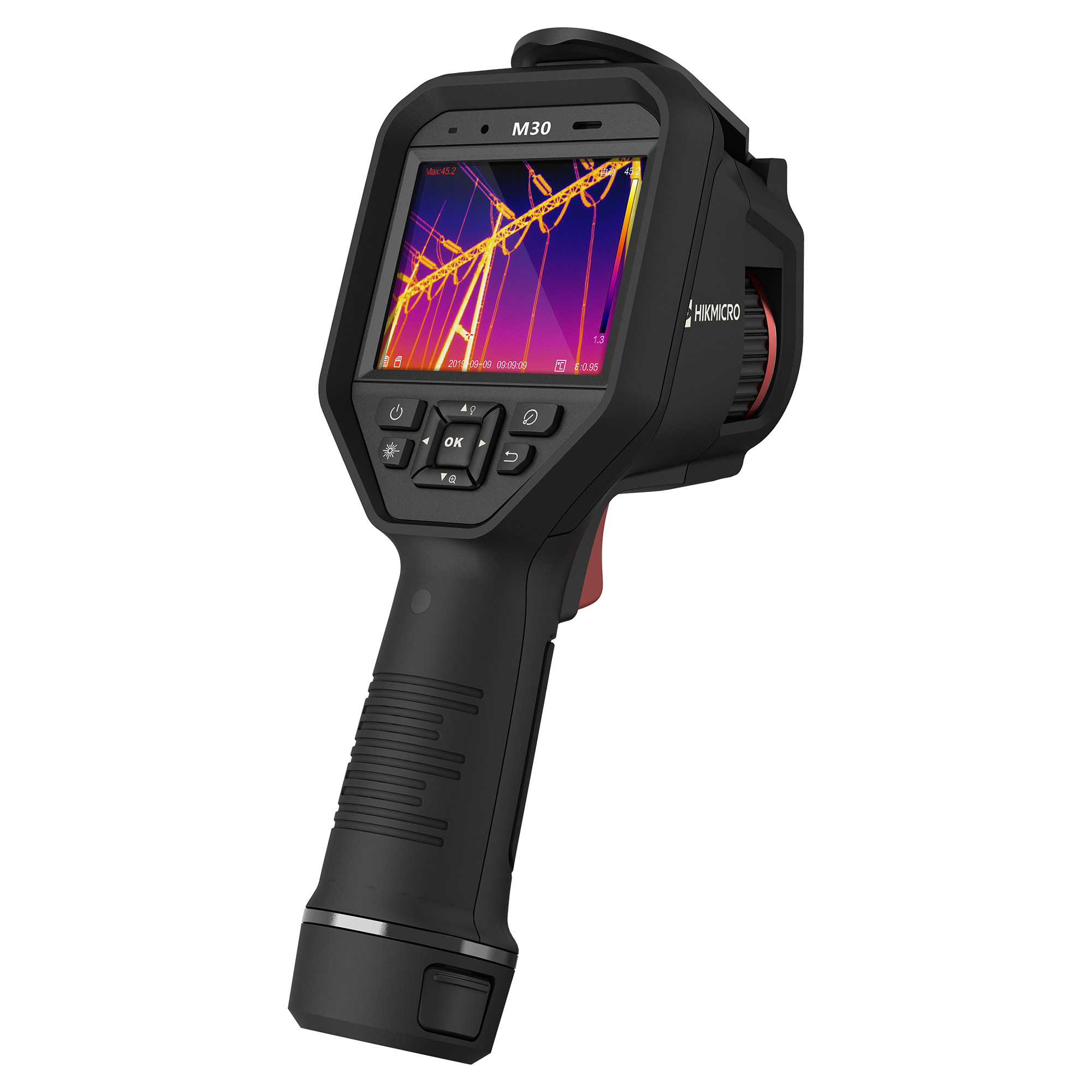
- IR Res: 384 x 288px
- Use: Indoor/Outdoor
- Lens: Fixed FOV
- Features: Mid-range camera with reporting.
Professional Thermal Imaging Cameras for Electrical Inspections
The thermal imaging cameras below are advanced models suitable for both indoor and outdoor electrical inspections.
1. FLIR E96
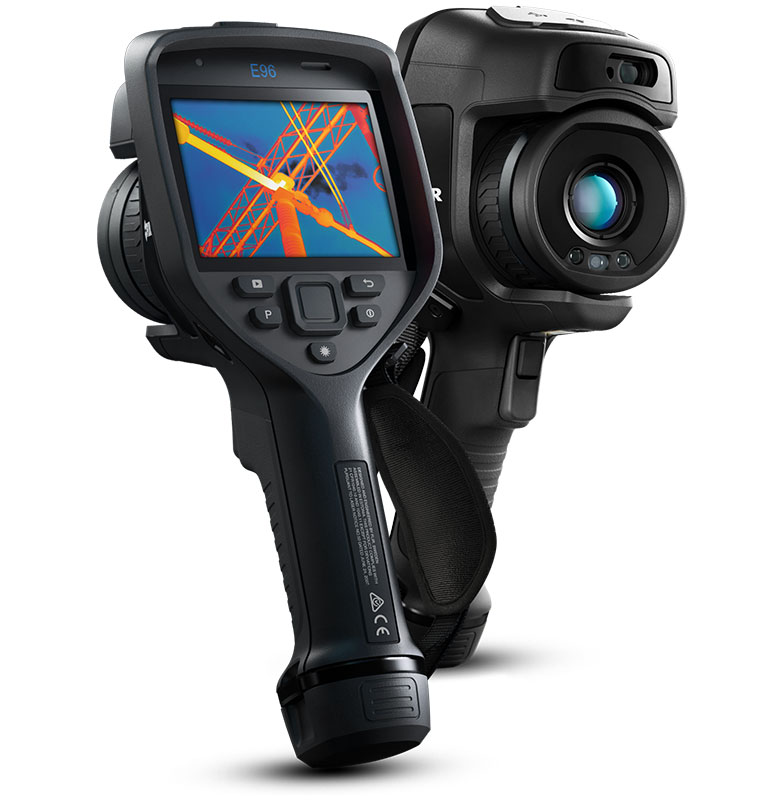
- IR Res: 640 x 480px
- Use: Indoor/Outdoor
- Lenses: Interchangeable, 14, 24, 42, 80 degrees
- Features: Professional camera with professional reporting.
2. FLIR T530
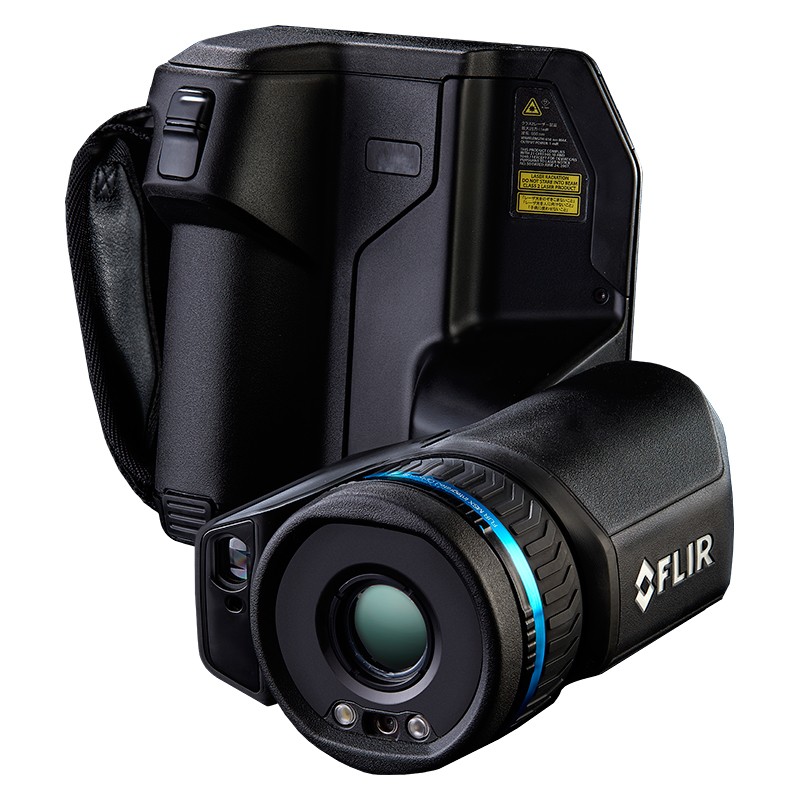
- IR Res: 320 x 240px
- Use: Indoor/Outdoor
- Lenses: Interchangeable, 14, 24, 42, 80 degrees
- Features: Professional camera with professional reporting.
3. FLIR T540
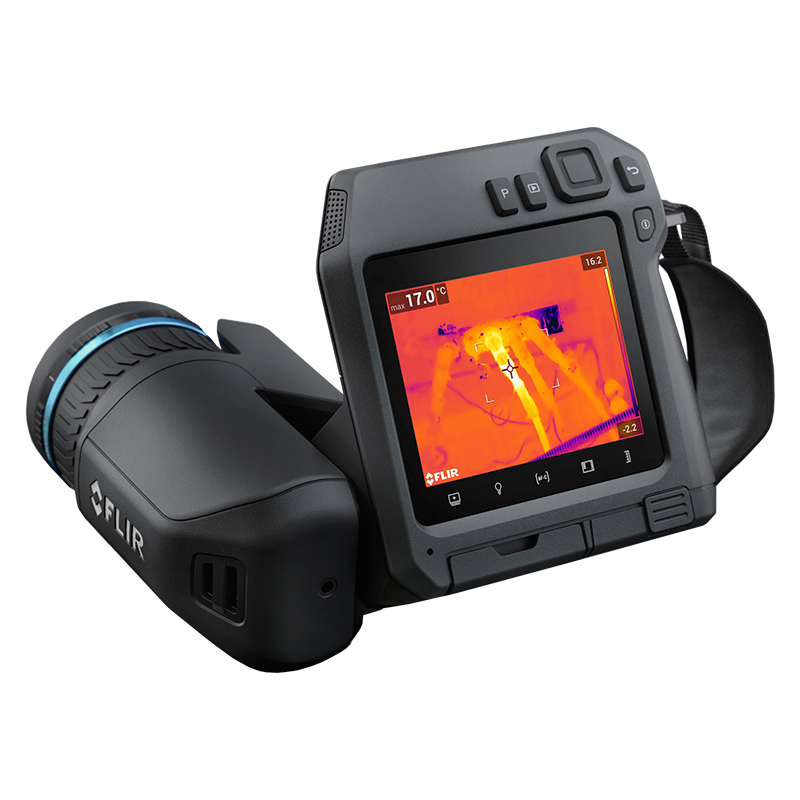
- IR Res: 484 x 348px
- Use: Indoor/Outdoor
- Lenses: Interchangeable, 14, 24, 42, 80 degrees
- Features: Professional camera with professional reporting.
4. FLIR T560
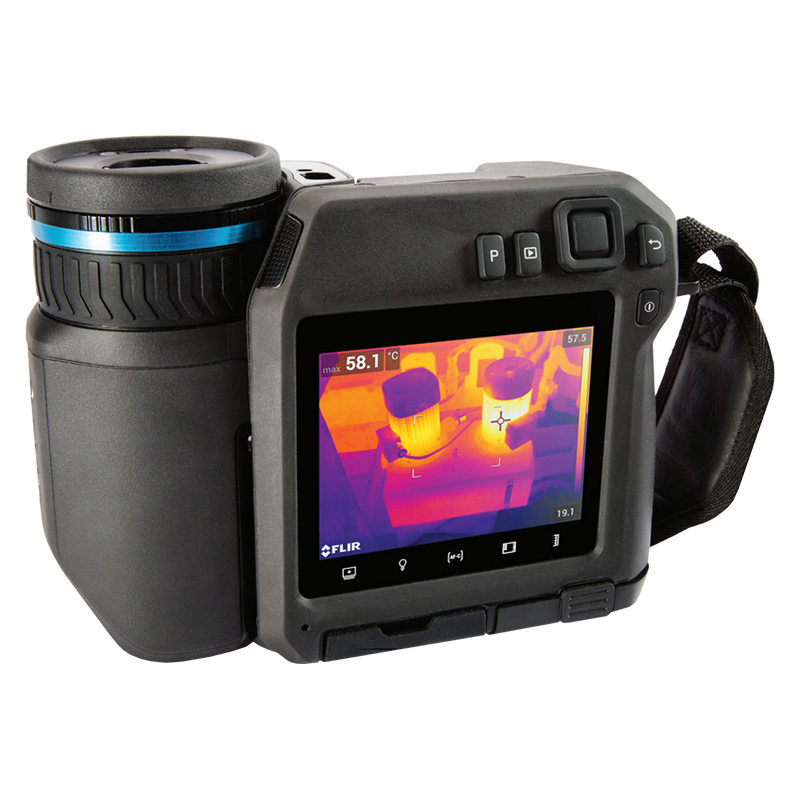
- IR Res: 640 x 480px
- Use: Indoor/Outdoor
- Lenses: Interchangeable, 14, 24, 42, 80 degrees
- Features: Professional camera with professional reporting.
5. FLIR T1020
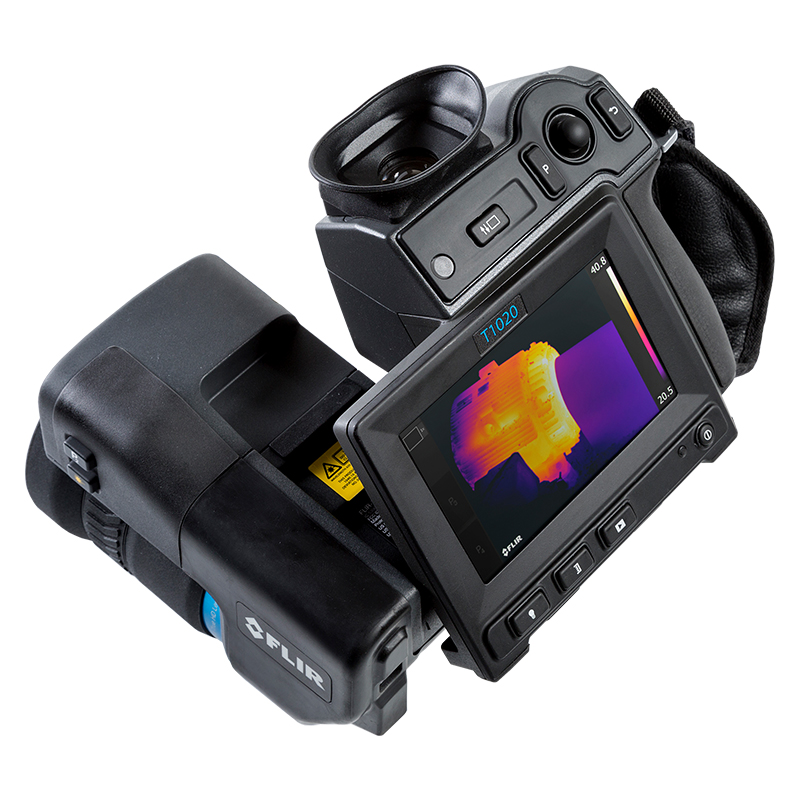
- IR Res: 1020 x 780px
- Use: Indoor/Outdoor
- Lenses: Interchangeable, 14, 24, 42, 80 degrees
- Features: Professional camera with professional reporting.
6. Fluke Ti401 Pro

- IR Res: 640 x 480px
- Use: Indoor/Outdoor
- Lenses: Interchangeable, 2xtele, 25macro, 4xtele
- Features: Professional camera with reporting.
7. Fluke TiX501

- IR Res: 640 x 480px
- Use: Indoor/Outdoor
- Lenses: Interchangeable, 2xtele, 4xtele
- Features: Professional camera with reporting.
8. Fluke TiX580
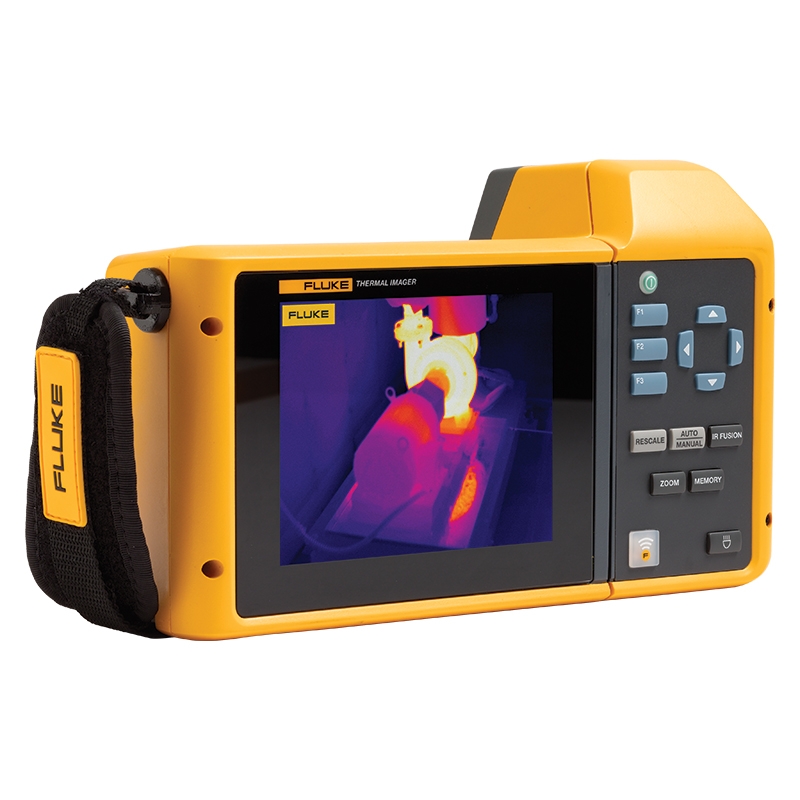
- IR Res: 640 x 480px
- Use: Indoor/Outdoor
- Lenses: Interchangeable, 2xtele, 4xtele, 25macro, 46wide
- Features: Professional camera with reporting.
Conclusion: Which Thermal Imaging Camera Is Right for Electrical Inspections?
Selecting the best thermal camera for electrical inspections is crucial for ensuring safety, efficiency, and reliability. With the right thermal imaging camera, you can catch potential issues early and thereby maintain electrical systems more effectively, reduce downtime, and ensure a safer working environment. By understanding your specific requirements and considering factors like IR resolution, thermal sensitivity, and lens options, you can make an informed decision that enhances your maintenance and inspection processes. At PASS we are proud to offer a range of models from leading manufacturers at every price point, ensuring we can provide a thermal solution that is perfect for you.
Shop Electrical Inspection Thermal Cameras

